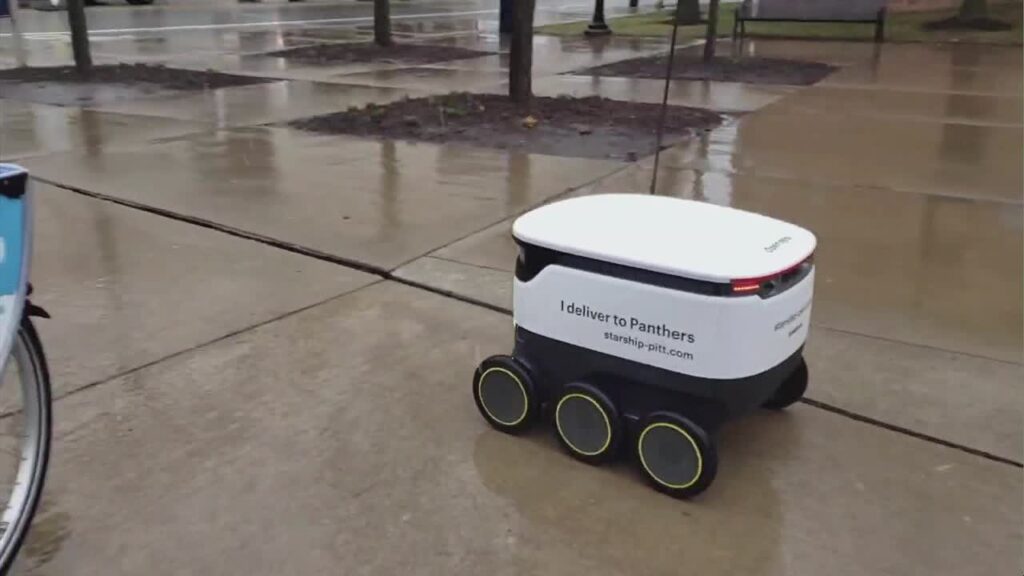Autonomous Robots Roll Out Food Delivery at University of Minnesota Campus
In an innovative move to enhance campus life and streamline food delivery, the University of Minnesota’s Twin Cities campus has begun integrating food delivery robots into its daily operations. Following the green light from the Minneapolis City Council, a year-long pilot program launched in early September is set to transform how food is delivered among students and staff.
Deliveries Powered by Technology
Up to 10 autonomous robots, referred to as ‘Personal Delivery Devices’ (PDD), are now roaming the campus grounds. These sleek, high-tech robots are designed to make food delivery more efficient and environmentally friendly, mainly catering to locations within the East Bank campus. Participating in this pilot program are three popular eateries located in the Cauffman Memorial Union: Starbucks, Panda Express, and Erbert & Gerber’s.
Anticipation and Excitement
There’s a palpable sense of excitement around the initiative, with university staff keenly anticipating its rollout. Councilmember LaTrisha Vetaw expressed her enthusiasm during an August committee meeting, sharing her eagerness to see the robots in action: “When the university staff met with me about this, I was like when, how, where do I see them.”
Environmental Considerations over Convenience
The city highlights the environmental advantages of these robots. Being electrically powered, they present a potential reduction in car usage for food delivery, which aligns with sustainability efforts in urban planning. However, this technology’s impact on employment has raised concerns among some officials.
Councilmember Jason Chavez voiced apprehensions, stating, “Robots taking people’s jobs [is] one concern I do have to be honest.” Meanwhile, Councilmember Aurin Chowdhury emphasized the necessity for robust evaluations of the program after its conclusion, committing to a thorough analysis of both its environmental impact and effects on local jobs. “I hope and I trust our team, public works to do a really robust evaluation to really look back and see if this is, so we can make a decision should it expand,” Chowdhury added.
Operational Guidelines
These autonomous robots are designed to adhere to specific guidelines: they will travel at no more than five miles per hour and primarily operate on sidewalks. For added safety, a human operator can override the system if necessary. The university’s partnership with Starship Technologies, a company already experienced in this space with over 6 million successful deliveries, further underscores the initiative’s professional backing.
Conclusion
The introduction of food delivery robots at the University of Minnesota marks a significant step towards integrating technology to improve campus accessibility and sustainability. As the year-long pilot unfolds, its outcome could shape the future of food delivery both on campus and beyond. Whether fostering convenience or raising questions about employment, this innovative approach represents the ever-evolving relationship between technology and daily life, making it a noteworthy experiment in the educational sector.
Summary:
The University of Minnesota’s pilot program for autonomous food delivery robots is set to test its efficacy and environmental impact while addressing employment concerns. With considerable enthusiasm from council members and the student body alike, the outcome of this initiative could hold valuable insights into the future of delivery services in urban settings.




